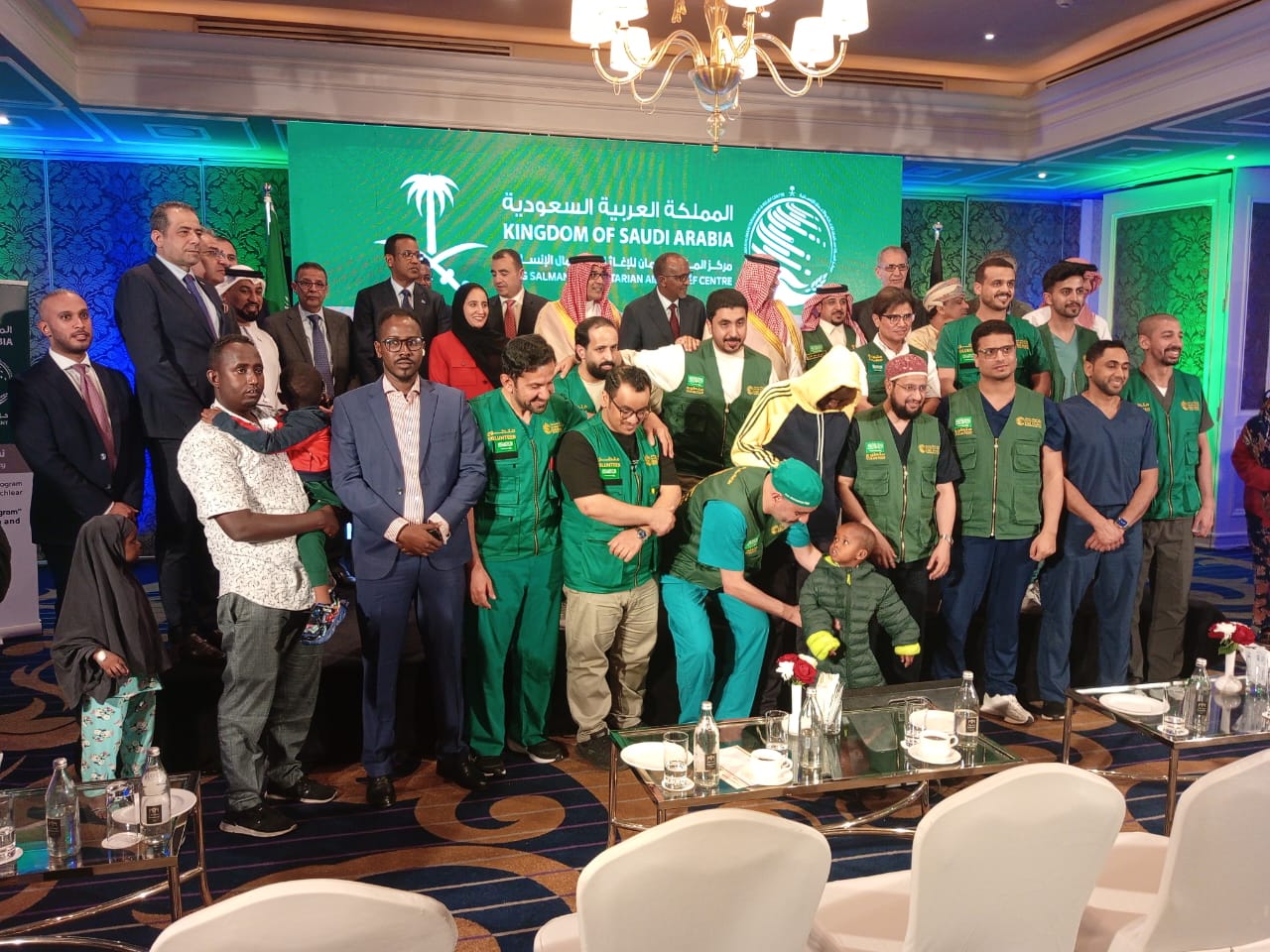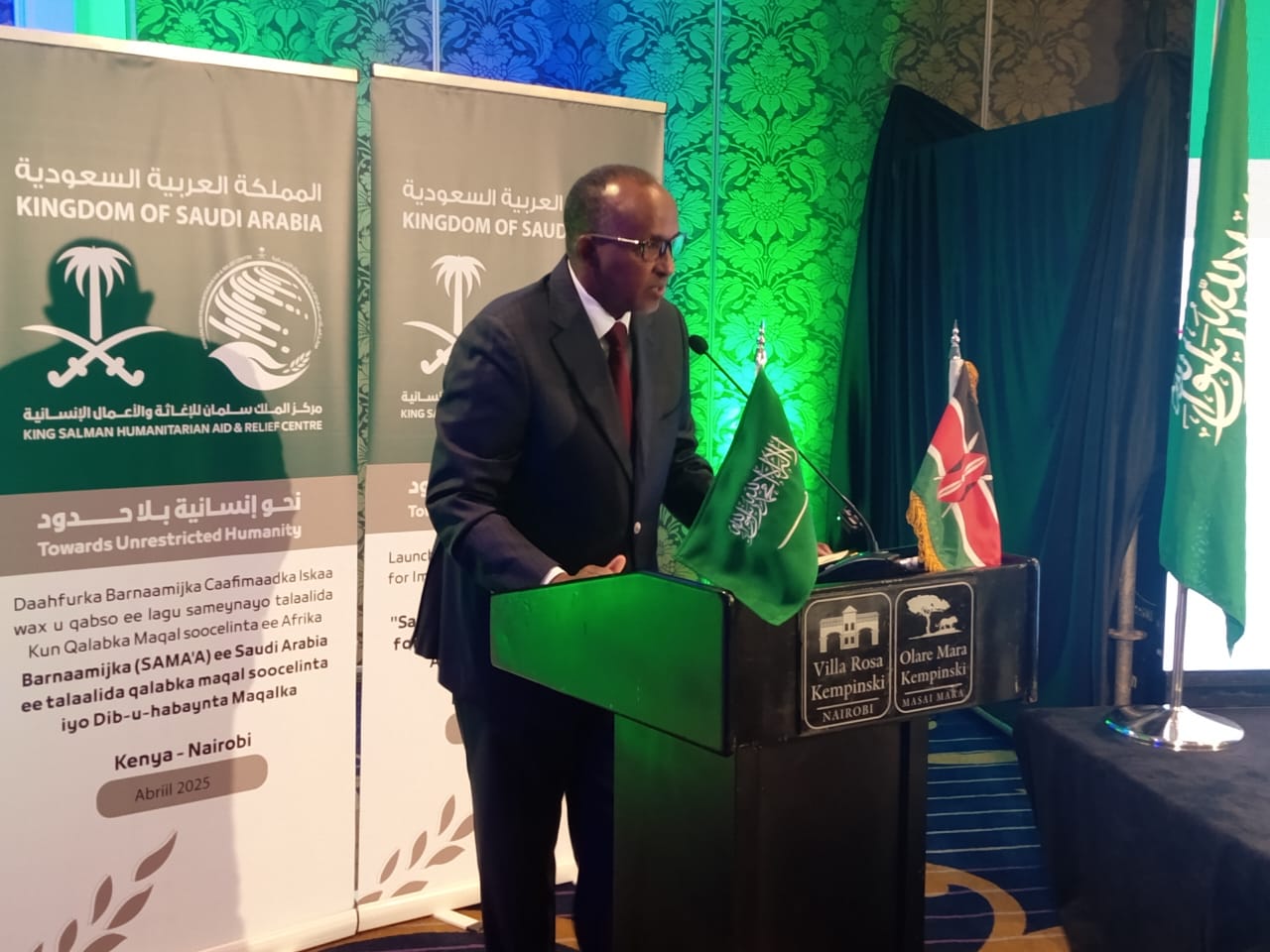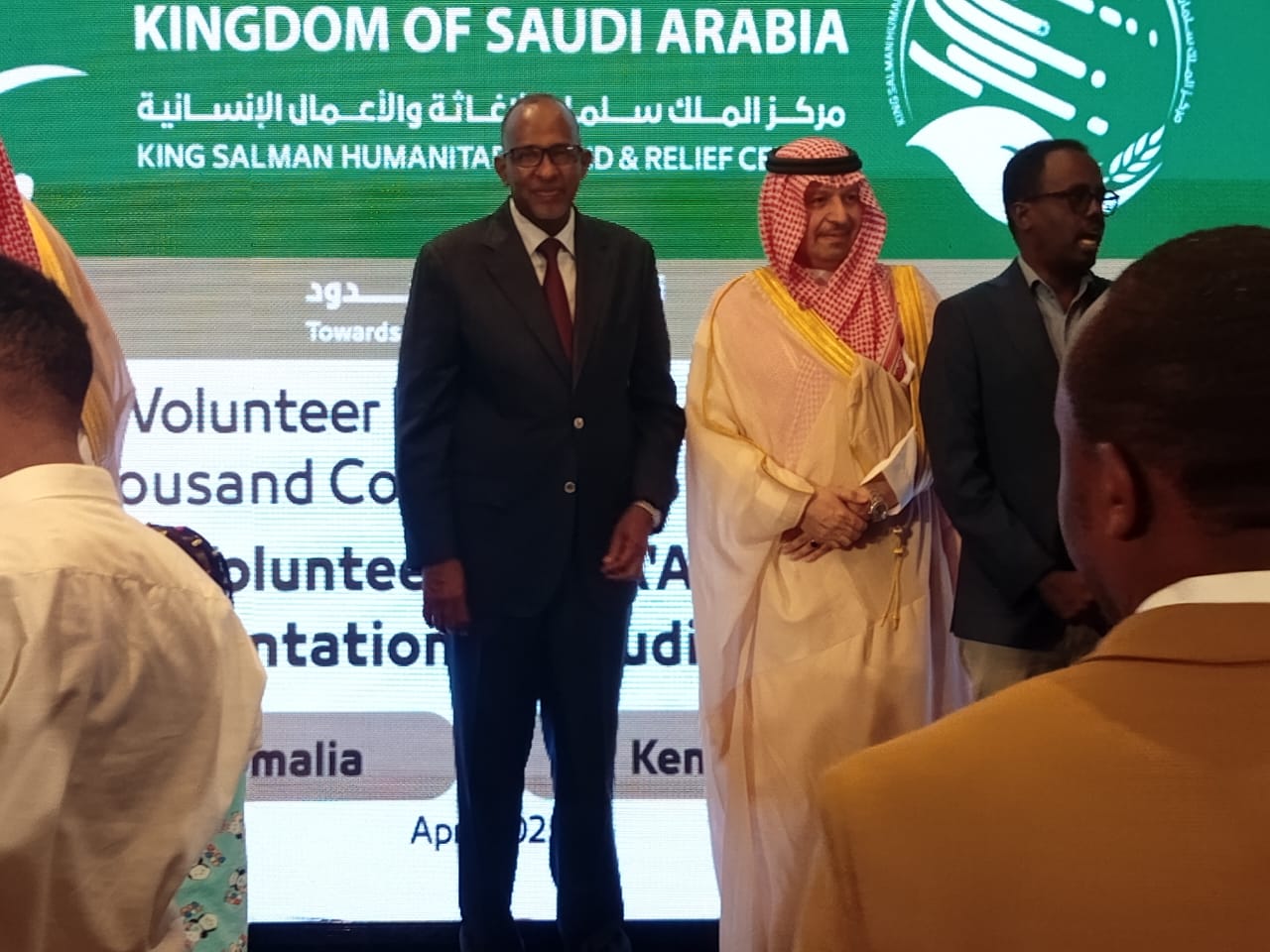 Health CS Aden Duale, Saudi Arabia dignitaries including Envoy to Kenya Khalid Al Salman and beneficiaries of the program at Kempinski, Nairobi on April 17, 2025/JAMES GICHIGI.
Health CS Aden Duale, Saudi Arabia dignitaries including Envoy to Kenya Khalid Al Salman and beneficiaries of the program at Kempinski, Nairobi on April 17, 2025/JAMES GICHIGI.In a significant step toward international health cooperation, Kenya and Saudi Arabia have teamed up to introduce a program for electronic cochlear implants for children in Kenya.
A cochlear implant is a medical electronic device that improves hearing by stimulating the hearing nerve (also known as the auditory or cochlear nerve) to those who ail from hearing impairments.
Speaking during the launch at Kempinski, Nairobi, on Thursday evening, Health Cabinet Secretary Aden Duale lauded the move, emphasizing the profound impact it is expected to have on children with hearing impairments.
He said the government was committed to addressing the underlying issues in line with the Kenya National Ear and Hearing Care Strategic Plan 2023-2028 and Universal Health Coverage.
"Other interventions that include the cochlear implant programs at Moi Teaching and Referral Hospital and select 160 procedures have been completed to date," he stated.
"We also have the pilot newborn born hearing screening at Machakos, in Garissa, and at Kenyatta National Referral Hospital in Nairobi."
 Health CS Aden Duale addresses attendees during the launch of cochlear program in Kempinski, Nairobi on April 17, 2025/JAMES GICHIGI.
Health CS Aden Duale addresses attendees during the launch of cochlear program in Kempinski, Nairobi on April 17, 2025/JAMES GICHIGI.The CS noted that hearing difficulties remain a significant health concern, particularly in rural areas whereby access to specialized medical care is limited.
"From the data available in 2019 census, it showed that approximately 1 percent of individuals over the age of 5 leave with hearing difficulties with a higher prevalence observed in the rural part of our country," Duale stated.
"Research indicates that 14 in every 1000 Kenyan children suffer from moderate to severe hearing loss, ten times higher in high income countries."
He emphasized there was a need for early intervention in children though early screening and timely support.
The CS noted that addressing hearing loss in its initial stages can prevent further complications including speech delays and cognitive development hindering school performance and potentially lead to social economic challenges.
 Health CS Aden Duale and Saudi Arabia Envoy to Kenya Khalid Al Salman during the launch of cochlear implant program in Kempinski, Nairobi, on April 17, 2025/JAMES GICHIGI.
Health CS Aden Duale and Saudi Arabia Envoy to Kenya Khalid Al Salman during the launch of cochlear implant program in Kempinski, Nairobi, on April 17, 2025/JAMES GICHIGI.Also in attendance was Ambassador of the Royal Embassy of Saudi Arabia in Kenya Khalid Al Salman who hailed the move, attributing it to the strong and fruitful partnership between Kenya and Saudi Arabia.
He noted that such collaborations are key to advancing healthcare solutions and improving lives. The envoy said the Middle East nation would maintain their support to the ongoing programs.
"The ministry of health in Saudi Arabia is targeting to employ 2,000 health workers to assist in Saudi medical centers," he cited.
The move by the two countries was made in collaboration with the King Salman Humanitarian Aid and Relief Center.
Assistant Supervisor General Director of King Salman Doctor Aqeel bin Jamaan Al ghamdi lauded Kenya’s inclusion among the beneficiaries of more than 3,300 projects—valued at USD 8 billion—being undertaken to address their humanitarian needs and promote human dignity








